News

17/11/2020
The Joint FAO/WHO Expert Committee on Food Additives (JECFA) wrapped up its 90th session on 6 November 2020, having assessed the suitability of transporting certain commodities prior to edible fats and oils. In particular, the experts focused on whether there could be any adverse human health effects from a possible carry-over of residues from what was shipped in the previous cargoes.
JECFA Members are prominent scientists from across the world who convene to evaluate the safety of food additives, contaminants, naturally occurring toxicants and residues of veterinary drugs in food. The risk assessments they carry out serve as advice to Codex...
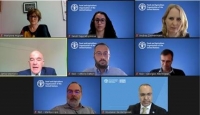
05/11/2020
FAO officers presented the publication, Understanding international harmonization of pesticide maximum residue limits with Codex standards, at the margins of a World Trade Organization (WTO) meeting today, that of the Committee on Sanitary and Phytosanitary Measures, also called the SPS Committee.
Vittorio Fattori, FAO Food Safety Officer, explained that despite longstanding efforts towards international harmonization of allowable thresholds for pesticide residues in foods, differences in national implementation of maximum residue limits (MRLs) continue to exist, raising questions with regard to their impact on trade. To shed light on this complex issue, FAO conducted an analysis, using rice as a case study, he said.
Many...

05/11/2020
Food safety experts will gather for four virtual sessions in November 2020 to discuss ‘regulating, delegating and participating’. Registration is now open and those interested from the public sector, food business, academia, research, consumer groups and non-governmental organizations as well as national, regional and international partners including United Nations families are welcome to attend.
The dates are: 17, 19, 24 and 26 November 2020.
Read more and access registration here
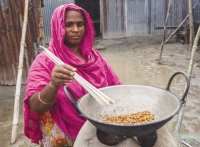
26/10/2020
Record-breaking temperatures, droughts, wildfires, hurricanes, melting glaciers and rising sea levels make the news in countries around the world. All too often we experience extreme weather events. We may be aware of the implications they have on the production or availability of food, but what about its safety?
To answer this question, earlier this year FAO published Climate change: Unpacking the burden on food safety, an update of a 2008 study. This compilation of current information shows the effects that climate change has on various food safety hazards and...
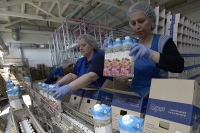
23/10/2020
The FAO/WHO International Food Safety Authorities Network (INFOSAN) has released a new publication for its members to recognize the trends of food safety issues in international food trade and to provide a holistic overview of the global activities carried out through the Network. Outlining the landscape of foodborne disease and INFOSAN’s efforts, the publication will allow for countries to better shape their national strategies and actions in managing international food safety incidents and emergencies.
The publication, INFOSAN Activity Report 2018/2019, starts with statistical analyses of food safety incidents notified and managed through INFOSAN over the last five years. It then goes...

22/10/2020
FAO is organizing an online event about “Strengthening country capacities to control and monitor residues of veterinary drugs in food” for Tuesday, 27 October 2020 at 14:00-15:30 (ICT and BKK time, GMT+7).
Following the framework of the FAO Assessment Tool for Laboratory and AMR Surveillance Systems (ATLASS), a regional tool for assessing capacities on veterinary drug residues in food (RVDF) was developed with the intention of providing guidance to countries towards a stepwise, progressive improvement of their relevant capacities in residue monitoring. An initial piloting work in Singapore and Thailand was carried out.
The webinar will be an opportunity to:
Listen to focal persons from Singapore and Thailand on their experiences...

21/10/2020
A group of experts, convened by the Joint FAO/WHO Expert Meeting on Microbiological Risk Assessment (JEMRA), have now started a three-week meeting to provide the Codex with updated scientific advice on Listeria monocytogenes (L. monocytogenes) in ready-to-eat (RTE) foods. The virtual meeting, chaired by Catherine Donnelly, includes participation by scientific excellence from around the world: Ana Allende, Sukhadeo Barbuddhe, Anne Brisabois, Brecht Devleesschauwer, Qingli Dong, Jeff Farber, Lisbeth Truelstrup Hansen, Alejandra Latorre, Alexandre Leclercq, Kudakwashe Magwedere, Deon Mahoney, Dorothy-Jean McCoubrey, Tom Ross, Elliot Ryser, Martin Wiedmann and Marcel Zwietering.
In 2004, FAO and WHO published the risk assessment of L....
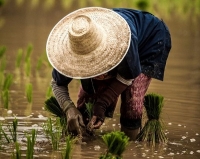
20/10/2020
WTO Committee on Sanitary and Phytosanitary Measures
5 November 2020, online event 13:30 -14:30 CET Rome, Brussels, Geneva
FAO food safety and trade experts will present a recent study on the harmonization of national pesticide Maximum Residues Limits (MRLs) with Codex pesticide MRLs, by taking a close look at rice. The study, Understanding international harmonization of pesticide maximum residue limits with Codex standards: A case study on rice, explores the level of harmonization in main rice producing and trading countries and possible effects...
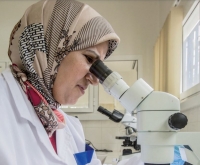
07/10/2020
When allocations of human or financial resources are limited, national authorities are hard pressed to efficiently address all food safety threats. Not to mention, the threats are changing on a regular basis. But knowing the likelihood and severity of the adverse impact that current foodborne hazards could have on the health of a target population facilitates objective, evidence-based, transparent decision-making and planning. That means there is a need for a systematic approach.
To facilitate the process, the FAO guide to ranking food safety risks at the national level has been produced and made available online today. “The objective of this guide...

25/09/2020
The second World Food Safety Day, largely observed virtually over the days and weeks around 7 June this year due the COVID-19 pandemic, was captured in a publication produced by FAO and WHO. The secretariats of the Codex Alimentarius Commission and INFOSAN contributed to promoting and documenting the UN Day celebrations, which took place in more than 60 countries.
The report, World Food Safety Day 2020 - Overview of an inspiring virtual celebration, offers a glimpse of the webinars, videos, press conferences, editorials, contests, social media initiatives and campaigns that helped to raise awareness and inspire action in support of food...
Stay up to date and connect to our RSS feed!
